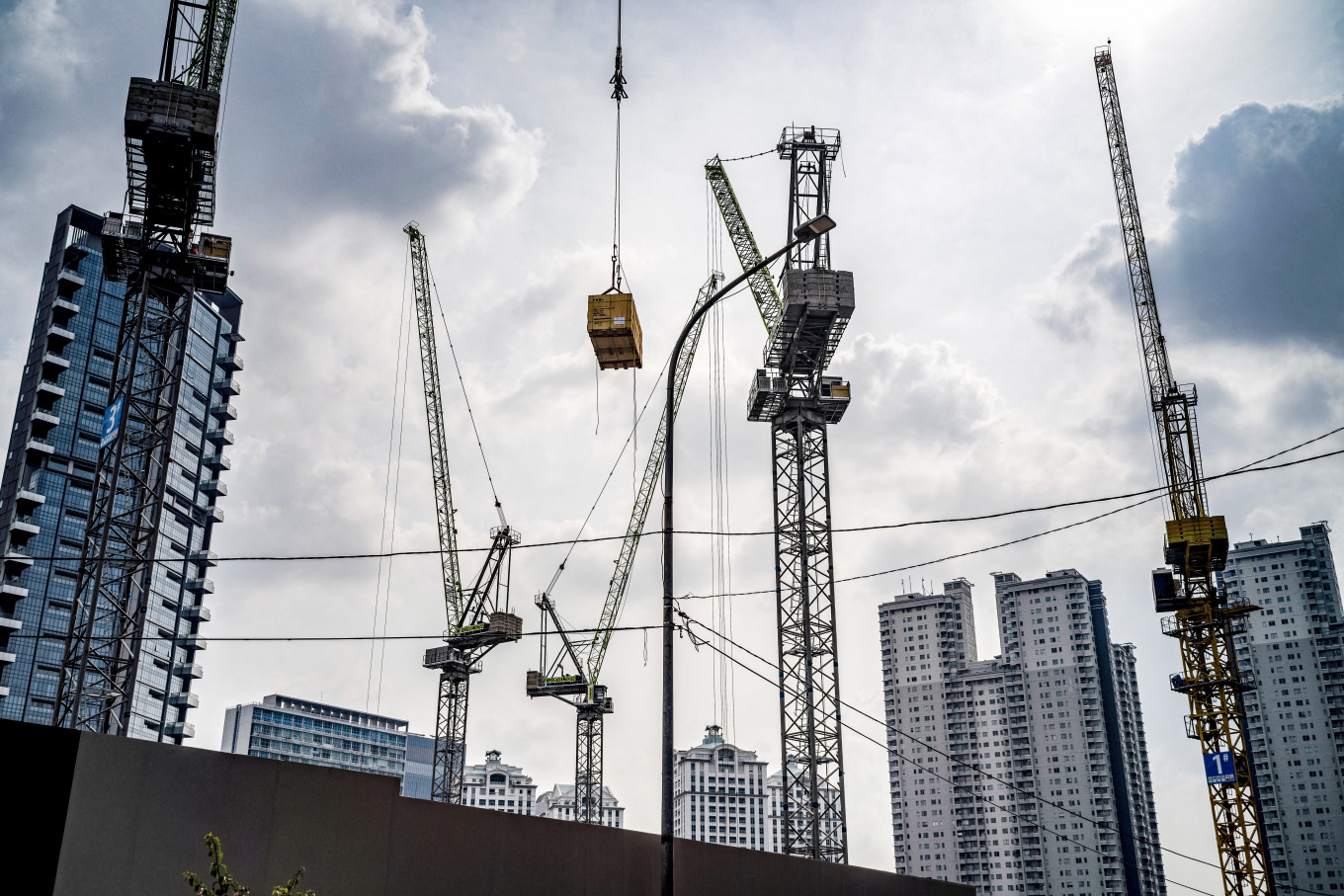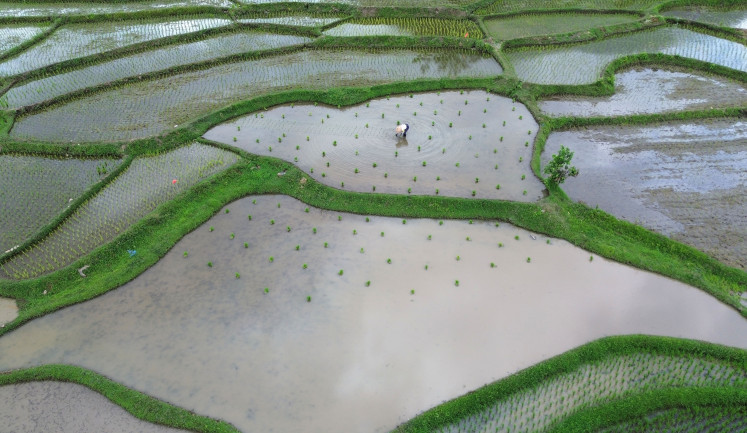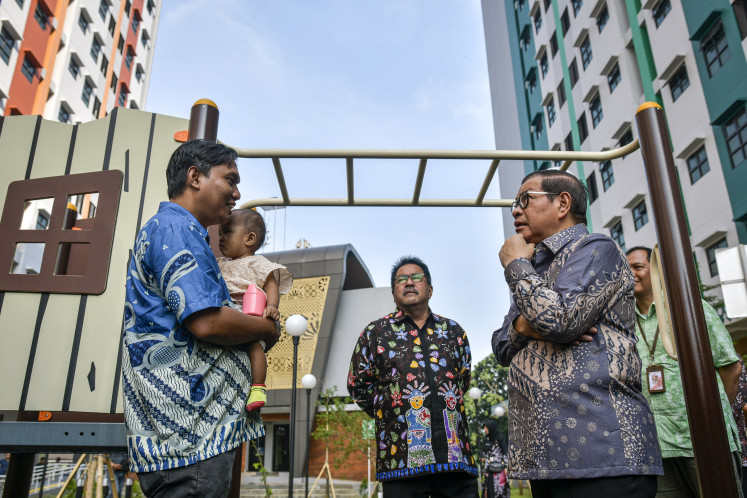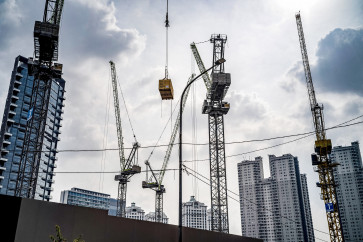Popular Reads
Top Results
Can't find what you're looking for?
View all search resultsPopular Reads
Top Results
Can't find what you're looking for?
View all search resultsAscent to prosperity: Securing Indonesia's herculean economic goals
The world economics scene projects a turbulent landscape in 2025.
Change text size
Gift Premium Articles
to Anyone
T
he Indonesian people have lauded President Prabowo’s first 100 days in office, marked by high public approval and a renewed sense of national purpose. This initial success underscores the potential for achieving ambitious national goals, but this undertaking will be a herculean mission, an uphill journey fraught with complexities. The path will demand razor-sharp navigation of both global headwinds and domestic challenges.
The world economic scene projects a turbulent landscape in 2025. In a recently published report, the Indonesian Business Council (IBC) analyzes four interconnected factors of global problems as 4Ts: Trump, Tension, Trade and Technology.
Trump's agenda of powering up America with his policies, including tariff barriers, homeshoring initiatives and tax cuts, aim to boost the United States economy. This simultaneously creates friction with other nations and intensifies geopolitical tensions, particularly between the US and China, which will largely influence global trade and investment flows.
Countries excluding the US and EU are experiencing an influx of Chinese goods, both intermediary and finished products, as China expands its domestic demand across all sectors and competes through reduced prices and flexible trade terms, ultimately diminishing the competitiveness of local products, including those in Indonesia.
Furthermore, a recent report by the International Crisis Group indicates that three out of 10 conflicts to be monitored are centered in the Middle East, elevating risks of market volatility and supply chain disruptions. This uncertainty urges nations to adopt strategic measures to mitigate financial risks amid potential capital outflows and increased operational costs.
Lastly, the essential need for widespread artificial intelligence adoption is juxtaposed with the potential for both an AI-driven energy boom and the very real risk of a subsequent market correction. This inherent tension, coupled with the ongoing debate surrounding institutional Bitcoin integration and its potential as a sovereign strategic reserve, creates a climate of both immense opportunity and considerable uncertainty.
The national projection on the other hand, reveals critical challenges in human capital and economic performance. Indonesia’s Human Development Index falls behind both the ASEAN-5 and the global average, and low PISA scores indicate a significant education gap. Indonesia’s ICOR remains high at 6.33, hindering quality investment. Our manufacturing contribution to gross domestic product is still lagging regional peers, at 17.2 percent. The money supply in ratio to GDP is at 43.8 percent, signifying a shallow financial market. The tax-to-GDP ratio stands at 10.4 percent, while the current account deficit has been persistent over the last decade.



















